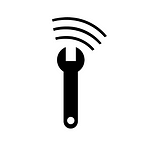Battling the Pantry Monsters
Catalina Prada (she/her) is a 2020 Summer Fellow with the Mayor’s Office of New Urban Mechanics currently evaluating Boston’s food delivery chatbot and exploring new ways to scale up the Double Up Food Bucks program.
Imagination is often a way to process what we are learning and the challenges we are facing. It helps us visualize things that we cannot see. During this summer, my experience at MONUM has taken me through different exploration paths, all of which I’ve enjoyed and have sparked my imagination. For the last four weeks, I have been supporting the Office of Food Access (OFA) in addressing a pressing problem: food insecurity. As my mind started devouring all the information I was given during our first weeks (and that I continue to be given), my mind also started creating a picture. I imagined creatures that materialize and personify an incredibly complex problem. From the beginning of the fellowship, and after learning more about it, food insecurity resembles huge, hairy, and grumpy monsters that live in pantries. These monsters are usually invisible for those who are not living with them; but for those who do, it can be terrifying and harmful. And on top of that, these monsters enjoy the company of other wicked problem monsters.
In the opposite corner, battling to eradicate food insecurity, we have the Office of Food Access, a tireless, caring, and love-giving team of devoted professionals. In my mind, OFA is a caring and resourceful creature. Its long arms are always trying to hug and appease the giant pantry monsters; however, it often needs help from the community and other city departments to wrangle them. With COVID-19 shutting down many partners that provided a food safety net for Bostonians, the Office of Food Access had to temporarily reinvent itself. With the collaboration of MONUM and the Boston Planning and Development Agency, OFA deployed a prototype to automatically take grocery delivery requests using an SMS chatbot.
One of my jobs this summer is to help tell the story of the many silent heroes who quickly transformed the Office of Food Access into a food distribution and delivery operations center worthy of admiration. Although some of the prototypes have just ended, there’s still work to be done. Applying MONUM’s practices of evaluating, reflecting, and sharing what experiments teach us, some of the questions I hope to answer this summer include how a chatbot might look if it were to be done again (by OFA or a different department), when this type of engagement might help Bostonians and the city, and who could be involved in a phase two prototype.
In addition to this evaluation, I am also helping OFA scale up their Double Up Food Bucks program. As we are exploring ways in which it can scale, we are being cognizant about the different stakeholders that are currently involved in the program, and those that could potentially become partners. The main beneficiaries of the Double Up Food Bucks program are SNAP users (they get a 50% discount on fresh fruits and vegetables); however, this program also positively impacts small neighborhood grocery stores and therefore we should also consider them as a key partner in our service, even if they are not our end beneficiaries.
As the Office of Food Access moves forward with its mission and continues to capture more pantry monsters from Bostonians’ homes, their pokédex will have better information on the weight, size, and type of the different food insecurity monsters. Not only will OFA have scaled up their programs (and earned some training points along the way), but hopefully more Bostonians will have their pantries monster-free.
Catalina is a graduate student at IIT Institute of Design where she is pursuing a Master of Design and a Master of Public Administration. During the past year, Catalina was a Fellow in the Chicago Mayor’s Office where she worked with different city departments. As a Mayoral Fellow, some of her work included supporting policy decisions for the second e-scooter pilot, defining a citywide data strategy, designing data dashboards and redesigning permit forms to make them easier to navigate for users. Before moving to the US for her graduate studies, Catalina worked in transportation and innovation consulting in Colombia, her home country.
About the Fellowship:
The New Urban Mechanics Summer Fellowship is designed for entrepreneurial students and professionals interested in working in public service. During this highly selective eight-week program, summer fellows work as a team and on their own projects, generating and implementing creative and thoughtful new prototypes to benefit the City of Boston.
